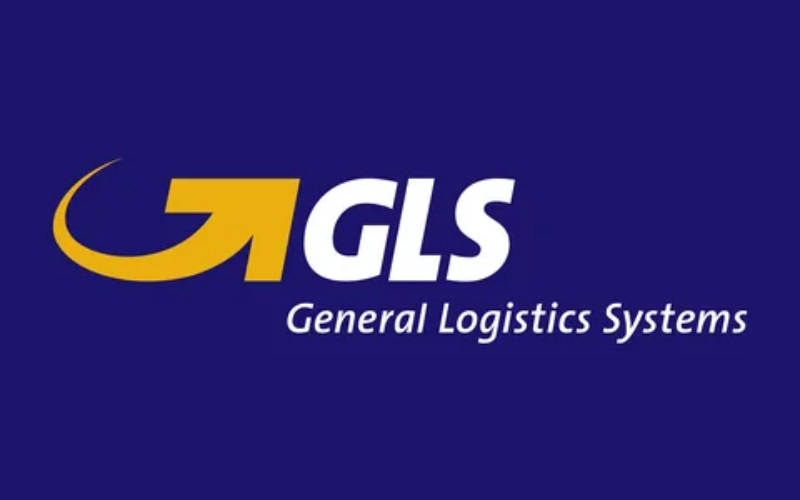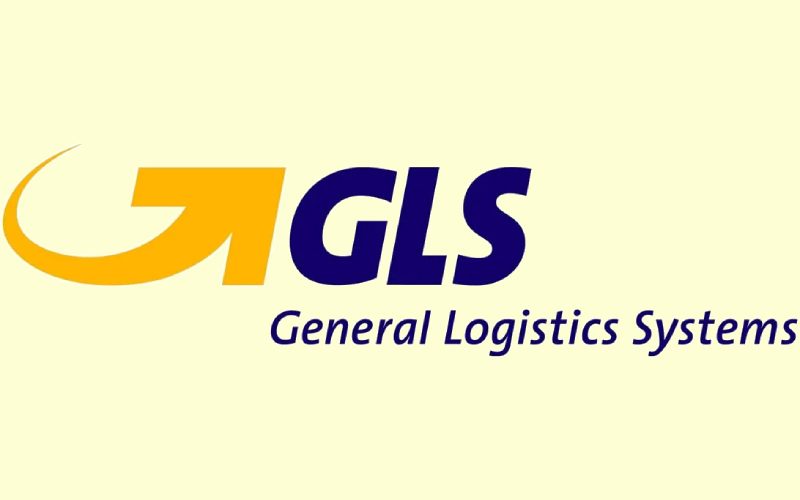
Have you ever heard of the GLS Postman scam? If not, it’s important to familiarize yourself with this fraudulent scheme that preys on unsuspecting individuals.
We will delve into what a GLS Postman is, how the scam typically works, the signs to look out for, and most importantly, how you can protect yourself from falling victim to this deceitful tactic.
Stay informed and stay safe in the online marketplace!
Key Takeaways:
- A GLS postman is a scammer who pretends to be a legitimate delivery person from the GLS delivery company to trick people into paying for fake packages.
- The GLS postman scam involves unsolicited contact, payment requests, and poor grammar and spelling in their communication with potential victims.
- To protect yourself from the GLS postman scam, verify the sender’s information, avoid sharing personal information, use secure payment methods, and report any suspicious activity.

What is a GLS Postman?
A GLS Postman, also known as a GLS letter carrier, is a representative of the GLS delivery service responsible for delivering parcels and packages to recipients.
These dedicated individuals play a crucial role in ensuring that packages reach their intended destinations promptly and securely.
GLS Postmen are often seen traversing neighborhoods on foot or in delivery vehicles, diligently following meticulously planned routes to deliver parcels efficiently.
Their interactions with customers are essential, as they provide updates on package statuses, collect signatures for deliveries, and address any concerns or inquiries that recipients may have regarding their shipments.
How Does the GLS Postman Scam Work?
The GLS Postman scam operates by deceiving individuals through fraudulent schemes that impersonate legitimate GLS delivery services, aiming to extract money or personal information under false pretenses.
Initially, scammers may send out authentic-looking emails or texts claiming to be from the GLS delivery service, informing the recipient of an undelivered package or a missed delivery attempt.
These communications often contain official logos and language to appear genuine. GLS scam Facebook pages may also be set up to lure victims by offering supposed deals or discounts on deliveries.
Once the recipient interacts with these messages, scammers start manipulating them into providing sensitive information or making payments to resolve the ‘delivery issue.’
The Initial Contact
The GLS Postman scam initiates with unsolicited contact from an individual posing as a GLS agent, often through social media platforms like Facebook.
These scammers lurk in online communities, searching for individuals who may have recently used GLS services or expressed interest in parcel deliveries.
By creating convincing fake profiles with stolen images and information, they establish credibility in their victims’ minds. Once the victim accepts the friend request or message contact, the scammer begins the deception, promising special offers or urgent parcel delivery updates.
Through clever manipulation and persuasive language, they aim to extract personal details or financial information.
Scammers may also use official-looking logos and templates to lend credibility to their messages, further deceiving unsuspecting individuals who may be less cautious in their online interactions.
The Fake Delivery Attempt
After the initial contact, scammers orchestrate a fake delivery attempt to create a sense of urgency, claiming that a package requires immediate payment for expedited delivery through GLS Express services.
This simulated scenario plays on the victim’s emotions, making them believe that failing to pay will result in not receiving their package.
The scammers use terms like GLS Express delivery payment or GLS Express payment UK to lend credibility to their fraudulent scheme.
By pressuring individuals with tight time constraints and the fear of missing out on a critical delivery, scammers aim to trick them into making rushed payments without fully verifying the authenticity of the situation.
The Request for Payment
Following the fake delivery attempt, scammers request payment, often insisting on cash on delivery or immediate online transfers, exploiting victims’ trust in legitimate GLS courier practices.
These scammers employ various tactics to pressure their targets into paying by manipulating the urgency and legitimacy of the situation.
They might claim that the parcel will be returned or destroyed if payment is not made promptly, preying on the recipient’s fear of losing valuable items.
Scammers often mimic official communication from GLS, sending convincing emails or texts that appear authentic to deceive the recipient.
This careful orchestration aims to confuse and corner victims into complying with their demands, ultimately leaving them financially duped and deep in the deception’s web.

What Are the Signs of a GLS Postman Scam?
Recognizing a GLS Postman scam involves identifying indicators such as unsolicited contact, payment requests, poor grammar, and suspicious contact details like email addresses or phone numbers.
Another common red flag to watch out for is when a GLS agent demands urgent action or threatens consequences if you do not comply immediately.
It’s essential to remember that GLS will never ask for sensitive information or payment through unusual channels, so if you encounter these requests, it’s a major warning sign.
Always verify the legitimacy of any GLS letter or communication by cross-referencing with official sources or contacting the company directly to confirm the sender’s identity.
Unsolicited Contact
One of the primary signs of a GLS Postman scam is receiving unsolicited messages or friend requests from fake GLS agents on platforms like Facebook Marketplace, prompting recipients to engage in dubious transactions.
Engaging with these unknown individuals can carry various risks, ranging from financial loss to potential identity theft. Fake GLS agents often use enticing offers or urgent requests to lure unsuspecting individuals into sharing personal information or making payments.
It is crucial to exercise caution and verify the identities of individuals claiming to be GLS agents before proceeding with any transactions. Authenticating their legitimacy can help safeguard against falling victim to scams and protect personal information from falling into the wrong hands.
Requests for Payment
Scammers involved in the GLS Postman scam often push victims to make immediate payments to purported GLS Express agents, exploiting urgency and the allure of express delivery services for monetary gain.
These scammers create a sense of urgency by claiming that failure to make payment will result in delivery delays or even package confiscation.
They may use intimidating language or threaten legal action to pressure victims into parting with their money swiftly, preying on fear and panic.
The fraudulent GLS Express agents often request payment through unconventional channels or provide suspicious account details, making it crucial for individuals to double-check and verify the legitimacy of any payment requests.
Poor Grammar and Spelling
Another red flag of a GLS Postman scam is the presence of grammatical errors, spelling mistakes, or inconsistencies in communications purportedly from GLS Express Delivery, indicating potential fraudulent activity.
This serves as a critical warning sign for recipients to be cautious when encountering messages with such errors. Linguistic inaccuracies not only hint at a lack of professionalism but also raise suspicion about the sender’s legitimacy.
By scrutinizing the content for these inconsistencies, individuals can protect themselves from falling victim to fraudulent schemes.
Suspicious Email Address or Phone Number
In cases of a GLS Postman scam, individuals should remain wary of emails or messages containing unusual email addresses or phone numbers, resembling patterns seen in other delivery service scams like the FedEx Facebook Marketplace scam.
These scams often involve fake notifications or requests for personal information, luring victims into sharing sensitive details under the guise of a legitimate delivery service.
It’s crucial to scrutinize contact details for any signs of inconsistencies or irregularities, such as misspelled URLs or suspicious domains.
By being vigilant and verifying the authenticity of communication, individuals can protect themselves from falling victim to scams like the FedEx Facebook Marketplace scam and avoid potential financial losses.
Remember, always prioritize caution when dealing with unfamiliar or suspicious messages to stay safe online.

How to Protect Yourself from the GLS Postman Scam?
To safeguard against the GLS Postman scam, individuals should verify the sender’s information, refrain from sharing personal details, opt for secure payment methods, and promptly report any suspicious activity linked to GLS Express Delivery payments.
Along with these preventive measures, it is essential to be cautious while responding to unsolicited emails or messages purportedly from a GLS agent in the UK.
Phishing attacks are a common tactic used by scammers to obtain sensitive information, so always double-check the email address or contact details for authenticity.
When making online transactions for GLS Express Delivery payments, ensure that you are using secure payment gateways and avoid sharing your financial details over unsecured connections.
If you encounter any suspicious requests for payment or unusual demands in the name of GLS, do not hesitate to reach out to customer support immediately to verify the legitimacy of the communication.
- Read more of our other posts and discover new things about Red Post Boxes Emptied in Australia.
Verify the Sender’s Information
It is crucial to authenticate the sender’s credentials in any communication related to GLS services, ensuring that the message originates from legitimate GLS agents and not imposters seeking to perpetrate scams.
Verifying the authenticity of the sender is essential as GLS agents are entrusted with sensitive information and parcels. Scammers often try to impersonate these agents to gain access to personal details or financial information.
By confirming the credentials of the sender, individuals can safeguard themselves against potential fraud and identity theft.
Understanding what GLS stands for and its role in the logistics industry can help individuals recognize fraudulent messages more easily. It provides clarity on the types of communications one can expect from genuine GLS agents, making it easier to spot suspicious activities.
Do Not Share Personal Information
Individuals should exercise caution and refrain from disclosing personal details or sensitive information to purported GLS agents, especially in cases where requests for such data are unsolicited or seem suspicious.
Scammers often pose as legitimate GLS representatives to deceive unsuspecting victims, aiming to steal personal data or commit fraud. It is crucial to remember that a genuine GLS letter carrier will never ask for sensitive information via email or phone.
Protect your privacy by verifying the identity of any supposed GLS agent from the UK before sharing any personal details. Stay informed about the prevalent GLS agent UK scams and be wary of any unusual requests for financial details or passwords, as these are red flags for potential fraudulent activities.
Use Secure Payment Methods
When making payments related to GLS Express Delivery services, individuals should prioritize secure payment methods and verify the legitimacy of transactions to mitigate the risk of falling victim to fraudulent schemes.
It is crucial to always check that the website you are using for GLS Express Payment UK is secure and encrypted to safeguard your personal and financial information.
By ensuring that the payment platform is reputable and trustworthy, the chances of unauthorized access to your sensitive data are significantly reduced.
Scrutinizing the details of your transaction and cross-referencing them with GLS’s legitimacy is an essential step in ensuring the security of your online interactions.
Legitimate GLS services offer clear terms and conditions, secure payment gateways, and customer support to address any concerns or queries that may arise during the transaction process.
Report Suspicious Activity
In instances of encountering suspicious behavior or potential GLS Postman scams, individuals should promptly report such activities to the relevant authorities, including local police stations or consumer protection agencies, to prevent further fraudulent incidents.
It is crucial to take action against these deceptive practices by staying vigilant and notifying the necessary parties whenever any irregularities arise.
By reporting promptly, individuals not only protect themselves but also contribute to safeguarding the wider community from falling victim to similar scams. Remember, prevention is always better than dealing with the aftermath of fraud.
Keep an eye out for common red flags associated with GLS Express Delivery such as unsolicited requests for personal information or suspicious payment requests, especially those related to GLS courier cash on delivery services.
Frequently Asked Questions
What is a GLS Postman?
A GLS Postman is a postal worker for the international shipping company GLS, which operates in several countries including Europe, North America, and Asia. They are responsible for delivering packages and mail to customers’ homes or businesses.
How Does a GLS Postman Deliver Packages?
A GLS Postman uses a route to deliver packages to multiple locations throughout the day. They typically drive a delivery van or truck and use a handheld scanner to track and confirm package deliveries.
What Kind of Packages Does a GLS Postman Deliver?
A GLS Postman delivers a wide range of packages, including online orders, business shipments, and personal mail. They may also handle important documents, fragile items, and even perishable goods.
Do GLS Postmen Only Deliver Within Their Own Country?
No, GLS Postmen also deliver international packages to other GLS locations. They have a large network of partners and can ensure safe and timely delivery of packages to various destinations around the world.
How Can I Identify A Genuine GLS Postman?
A genuine GLS Postman will always be wearing a uniform with the company logo and will have a valid employee ID. They will also be driving a marked GLS vehicle and will carry a handheld scanner for tracking packages.
Are There Any Scams Involving Fake GLS Postmen?
Yes, unfortunately, there have been reported cases of scams involving individuals posing as GLS Postmen. These scammers may attempt to collect payment for fake packages or obtain personal information from unsuspecting victims.
It is important to always verify the identity of a GLS Postman before providing any sensitive information or making a payment.
RELATED POSTS
View all



